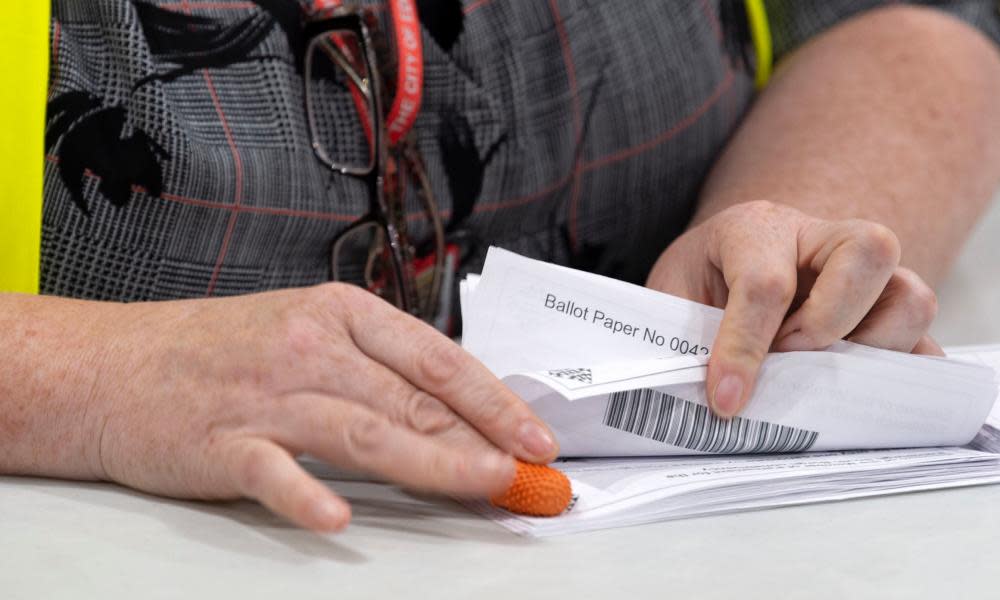Woking council accused of discouraging vulnerable voters

A Conservative-run council has been accused of potentially shutting vulnerable people out of May’s elections by asking people to show photo ID if they want a postal or proxy vote, even though it is not required by law.
Woking borough council in Surrey says that because voters are only “requested” to provide ID and proof of address, it is not breaching electoral rules.
But rights groups say the tactic could discourage groups of voters who are less likely to have the relevant documents, including older people, people who are homeless, those with disabilities, or people from black, Asian and minority ethnic communities.
They say this is particularly vital in the 6 May election as many more people are expected to seek postal or proxy votes because of coronavirus, particularly older voters.
The government plans to introduce mandatory ID for all in-person voting from 2023, a plan criticised separately as likely to suppress voter numbers from some communities.
In England, Scotland and Wales, for a postal or proxy vote, people only need to provide a signature and date of birth in advance, which is then checked against the same data on the vote itself.
But on its website, Woking council says that to apply for a postal or proxy vote, “you are requested to provide” copies of photo ID such as a passport or driving licence, and proof of residence, for example a utility bill or bank statement.
This page does not tell people that this is not mandatory. If voters then click on the link to apply for a postal or proxy vote, they are told, the subsequent document says: “If you do not provide such evidence, your application will still be processed, but your registration at the property will be examined further. This could result in your name being removed from the electoral register.”
Toby James, a professor of politics at the University of East Anglia and an expert on voting practices, said he had never previously seen an English council act in this way.
“Generally speaking, postal vote fraud is not really a big issue now,” he said. “The biggest issue at this election is going to be turnout, and people worrying about casting their votes. The wording of this certainly would seem to put people off. Voting really should be made as easy as possible for people.”
Grey Collier, an advocacy director at the civil rights group Liberty, said the Woking tactic was part of a “worrying trend to normalise the idea that showing ID to vote safeguards democracy, when it in fact does the opposite.”
Collier said: “If you’re young, if you’re a person of colour, if you’re disabled, trans or you don’t have a fixed address, you’re much less likely to have valid photo ID and could therefore be shut out of voting.”
Related: Fears of English local elections chaos due to lack of staff and venues
It is understood that the Electoral Commission will not intervene, as the council is only requesting details, and local returning officers are given some discretion over how they run elections locally.
Woking says it wanted to have extra safeguards because of previous local cases of postal voting fraud.
A council spokesperson said: “We request the additional information to ensure that the person seeking a postal vote both lives at the address and is the person they claim to be. Through this process, the electoral registration officer seeks to ensure the integrity of the election by minimising the risk of electoral fraud.”

 Yahoo News
Yahoo News 
